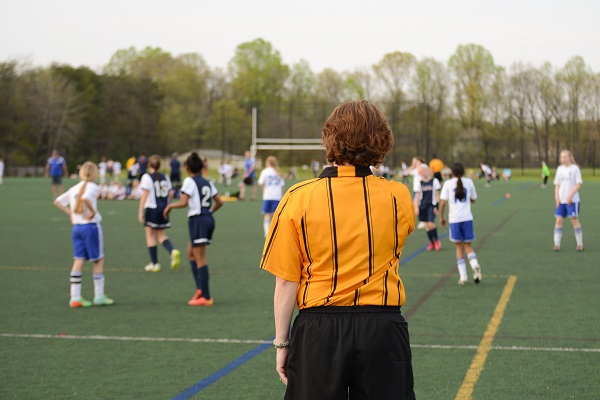
<h4 style="text-align: justify;">Want to stay in shape but struggling to fit an exercise routine into your day? Here are some ways to embed exercise into your day and experience the mental and physical benefits of a full workout.</h4>
<p style="text-align: justify;">Exercise is often recommended as a solution for teachers to combat stress but for some people the thought of having to add more activities to an already constricted calendar can be overwhelming.</p>
<p style="text-align: justify;">It is common for teachers to feel additional pressure because of trying to keep other people happy. Taking care of yourself can go to the bottom of priorities while you juggle to give full attention to the needs of your students, deal with parent and management expectations and keep things happy at home.</p>
<p style="text-align: justify;">If you struggle to stay physically active and exercise always gets pushed to the bottom of the list, you are not alone. Statistics show that more than 90 per cent of those who start a new exercise regime will drop out after just a few months.</p>
<p style="text-align: justify;">However, there are ways to embed exercise into daily activities. The more physically active you are, the more benefits you will feel and the easier it becomes to want to stay fit and healthy.</p>
<p style="text-align: justify;"><strong><b>Just 20 minutes of exercise can boost your mood for up to 12 hours<br />
</b></strong>Physical activity increases the level of mood enhancing neurotransmitters in your brain providing positive flow-on effects like feelings of euphoria, increased confidence and having more energy to face the day.<strong><b> </b></strong>A University of Vermont study found that just 20 minutes of moderate intensity aerobic exercise immediately improves the mood and these improvements can last up to 12 hours.</p>
<p style="text-align: justify;"><strong><b>How much exercise?<br />
</b></strong>Adults should aim to achieve at least two-and-a-half hours of moderate intensity physical activity a week. This can be spread throughout the week but try staying active for at least 30 minutes at a time. Include some muscle strengthening exercises to help maintain body strength and reduce the risk of injury. Those with health concerns or injuries should always seek professional advice before starting a new exercise regime.</p>
<p style="text-align: justify;">The intensity required to receive benefits from exercise differs depending on your fitness levels, but here are some general guidelines:</p>
<figure id="attachment_5076" aria-describedby="caption-attachment-5076" style="width: 600px" class="wp-caption alignright"><img class="size-full wp-image-5076" src="https://www.schoolnews.co.nz/wp-content/uploads/2017/02/SN36-HEALTH-SAFETY-Teacher-Wellbeing-Exercise-2-1.jpg" alt="" width="600" height="400" /><figcaption id="caption-attachment-5076" class="wp-caption-text">Just 20 minutes of exercise can boost your mood for up to 12 hours</figcaption></figure>
<p style="text-align: justify;"><strong><b>Moderate intensity</b></strong> activities will get you puffing and sweating but you can still talk comfortably. This includes brisk walking, cycling or chores like sweeping.</p>
<p style="text-align: justify;"><strong><b>Vigorous intensity</b></strong> exercises elevate your heart rate more and make talking difficult. This includes running, indoor soccer, jumping and hill walking.</p>
<p style="text-align: justify;"><strong><b>Muscle strengthening</b></strong> includes short periods of weight-bearing activities such as carrying shopping bags, digging in the garden or push-ups.</p>
<p style="text-align: justify;">An example week of activities for an average person may include 30-minute brisk walks on three days, 1 hour refereeing touch rugby, walking the stairs instead of taking the lift and 15 minutes digging the garden.</p>
<p style="text-align: justify;"><strong><b>Creative ideas for active health<br />
</b></strong>Sometimes there are other priorities that get in the way of exercise. Don’t pressure yourself to achieve a full workout all the time but try to achieve a little something rather than nothing at all. Make realistic exercise goals around physical activities that you enjoy. Don’t force yourself to jog if you don’t like running. You are more likely to stick with an exercise routine if you find it fun.</p>
<p style="text-align: justify;">If your schedule is tight and going to the gym just isn’t an option, look at creative ways to combine physical activity with other commitments. Remember &#8211; if you don’t like it, don’t do it.</p>
<ul style="text-align: justify;">
<li><b></b><strong><b>Walk and talk</b></strong>: Switch up water cooler conversations or coffee meetings by filling a water bottle and taking a walk in the fresh air.</li>
<li><b></b><strong><b>Combine exercise with teaching:</b></strong>Take a look at your class material to see if there’s anything you can switch to an outdoor lesson such as combining spelling with a game of catch.</li>
<li><b></b><strong><b>Household chores</b></strong>: Even the vacuuming seems more fun if you know it’s contributing to your exercise quota. Give yourself less time to finish a chore, that way you’ll up the intensity and get your muscles working harder.</li>
<li><b></b><strong><b>Coach or referee</b></strong>: Choose extracurricular activities that keep you active so you keep fit and meet school requirements in one. Umpiring netball will really get your aerobic system pumping.</li>
<li><b></b><strong><b>Think play not exercise:</b></strong>If you struggle to balance work commitments with family time, set goals that keep the whole family active so that everyone benefits. Short exertions of play like hopscotch or hula hooping make for a wonderful workout.</li>
<li><b></b><strong><b>Music and dance</b></strong>: replace exercise equipment with a musical instrument or suggest salsa lessons for your next date night.</li>
</ul>
<p style="text-align: justify;">Many factors contribute to a healthy work/life balance and exercise is just one mechanism for helping to cope with stress. Anyone feeling overwhelmed should seek support from a colleague and actively take part in staff wellness or employee assistance programmes.</p>

NZEI Te Riu Roa is considering legal action against the government for the disestablishment of…
NZQA is implementing AI-marking for all Year 10 written assessments from this year onwards, following…
Teaching personal financial responsibility isn't enough. Children should be taught broader economic context, argue New…
When students can't hear the teacher, they can't learn properly. Sound quality matters in education…
The Garden City is rich with learning opportunities, no matter what subject or part of…
Teaching Council of Aotearoa launch school leaders’ stories project with Unteach Racism to challenge institutional…
This website uses cookies.